The sight of traffic jams and queues into McDonald’s restaurants this week as six of their restaurants reopened again will be a welcome sight for beef finishers up and down the country.
McDonald’s is the single-biggest purchaser of Irish beef annually, purchasing 40,000t.
There’s no doubt that this has put some bite into the market, especially towards the south of the country where factories are anxious to ramp up production ahead of future food service demand.
Prime in-spec cattle are in highest demand
Retail steak and roast sales are also up, which means some of the carcase imbalance issues have been resolved.
Prime in-spec cattle are in highest demand, with quotes for in-spec cattle moving on again slowly this week, with €3.60/kg the new base for steers and €3.65/kg being paid for heifers.
There are deals being done at €3.70/kg depending on numbers and quality.
Top-end prices are being afforded to farmers with larger numbers.
Some plants are choosing to try and buy cattle on a liveweight price basis rather than increase the deadweight price.
Cull cows
Cull cows continue to be in big demand, with O+ cows now at €2.90/kg.
Again, €3.00/kg is available for farmers with larger numbers.
R+ cows continue to trade around the €3.20/kg mark, with more money available for mixes of R and U grade cows.
Some factories have tried to keep the base price at €3.55/kg, but farmers have been reluctant to sell
Factory agents have been very active in marts over the last week hoovering up any slaughter-fit cows and paying very good money for them.
Young bulls have moved also, with €3.60/kg the base price available for under-16-month bulls on the QPS grid.
Some factories have tried to keep the base price at €3.55/kg, but farmers have been reluctant to sell.
Under-24-month bulls continue to trade at €3.50/kg to €3.60/kg for R and U grades.
This week’s kill increased to 26,911– the first substantial increase in the kill since early February.
While it’s a long way off the kill numbers for the same week in 2019 at 32,853, the increase is a sign that demand is increasing and things are slowly coming back to normal in the meat trade.
Most of this rise came from cows, with an extra 924 cows killed in the last week compared with the previous week.
IFA national livestock chair Brendan Golden said beef prices are continuing to rise
The young bull kill also increased from 2,217 last week - up 344 bulls on the previous week’s kill of 2217 head.
IFA national livestock chair Brendan Golden said beef prices are continuing to rise, with factories paying 5c to 10c/kg over the quotes, as well as deals on transport and specs to get stock. He said prices still had a long way to go for feeders just to get a breakeven price.
In the UK, beef prices have jumped 20p/kg in the last two weeks putting base prices now at £3.40/kg (€3.82/kg ex-VAT), while prices in Scotland have moved to £3.55/kg (€3.98/kg ex-VAT).
Northern Ireland
In Northern Ireland, the beef trade continues to move in farmers’ favour, with quotes rising 12p/kg to a base of 342p/kg (€3.84/kg ex-VAT) for U-3 grading animals.
However, deals are widely available, with cattle agents on the lookout for all types of stock.
Prime cattle are moving off farm from 344p to 360p/kg (€3.86/kg to €4.04/kg) at the top end of the market.
Cull cows are up 15p/kg to a base of 270p/kg (€3.03/kg) for R3 animals, but deals are available on good-quality suckler-bred animals.




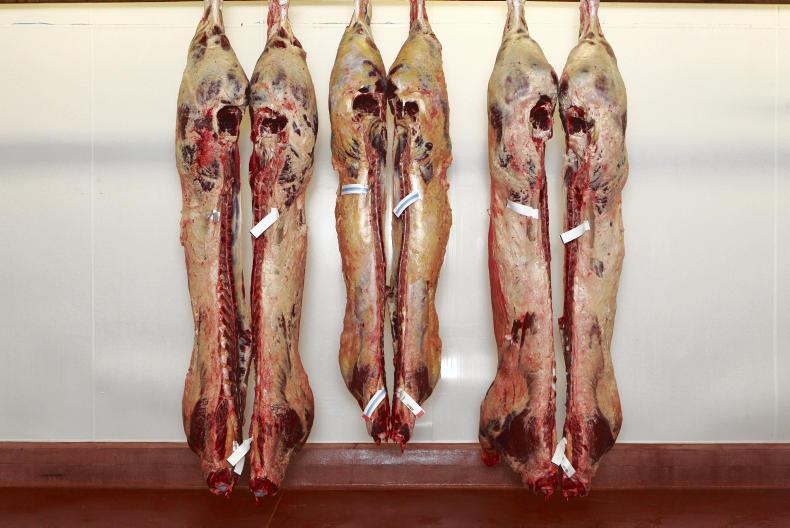
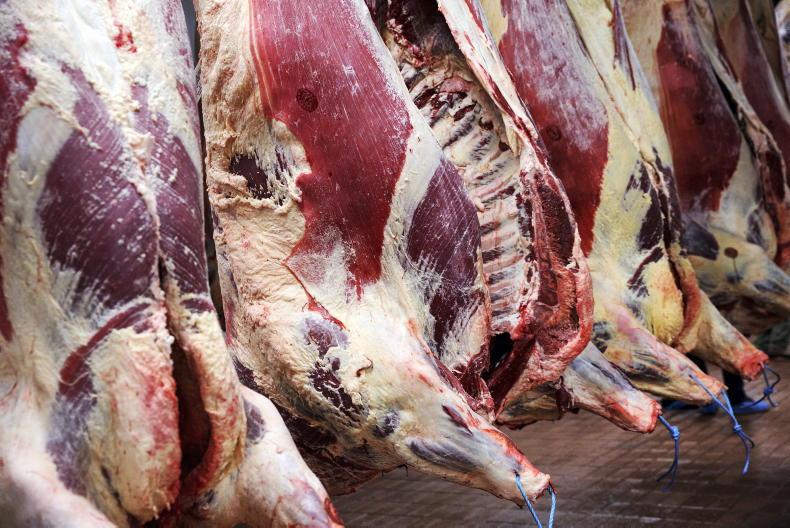

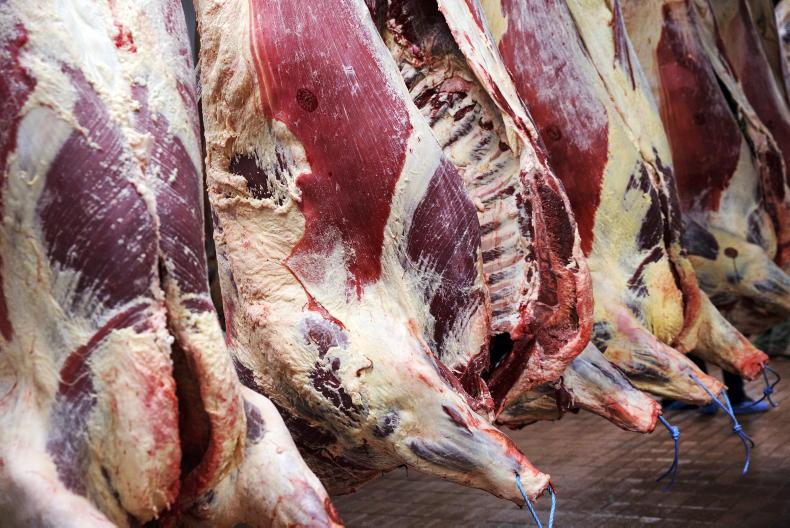
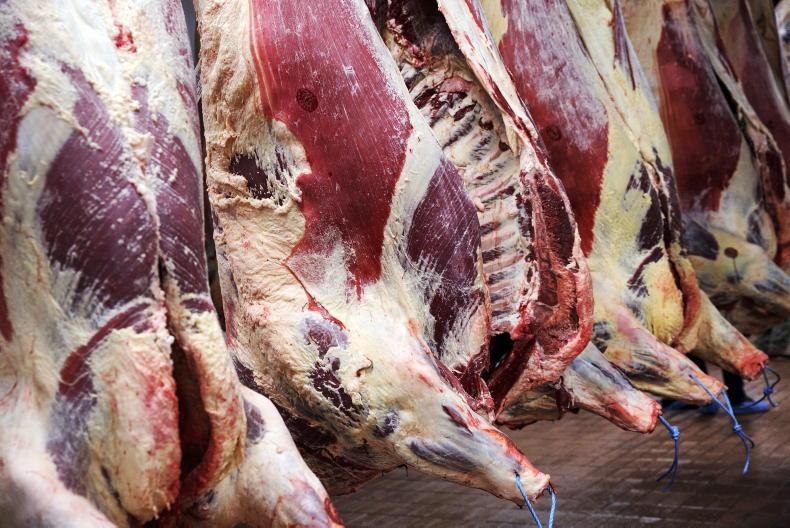
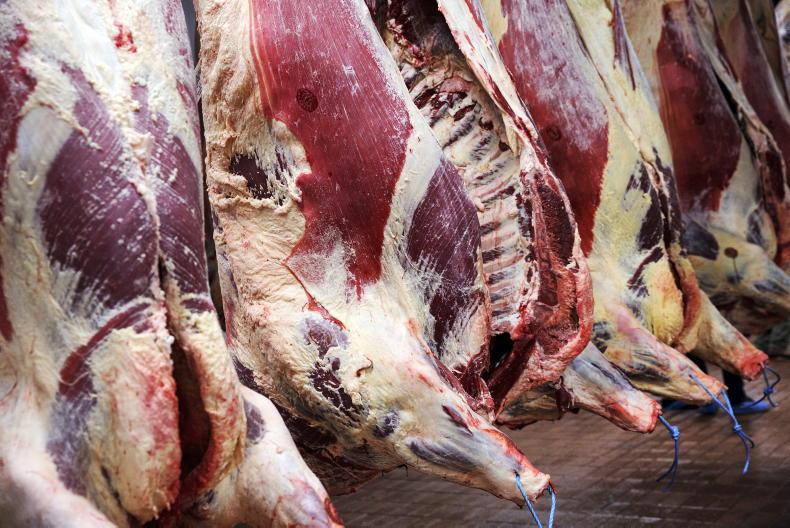
SHARING OPTIONS